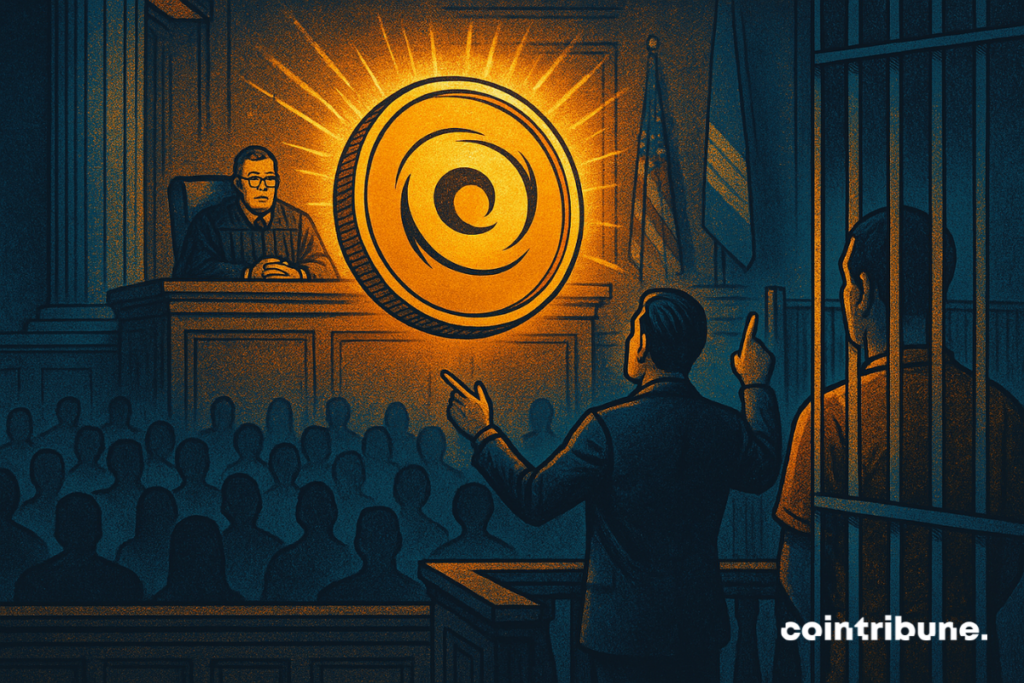Tornado Cash Co-Founder Convicted on One Count – Jury Gridlock Sparks Crypto Privacy Debate
Privacy tech meets courtroom reckoning as a Tornado Cash founder takes a partial hit. The crypto world watches—some clutching pearls, others shrugging—as decentralization's legal gray zones get darker.
Verdict Fallout: One guilty, many questions
The jury's split decision screams what we all know: regulators are playing whack-a-mole with blockchain anonymity tools. Meanwhile, Wall Street still can't tell a wallet from a Venmo account.
Final Thought: If code is speech, when do handcuffs come into play?

In Brief
- Tornado Cash co-founder Roman Storm was found guilty of operating an unlicensed money transmission business, but the jury deadlocked on money laundering and sanctions charges.
- Prosecutors claimed Tornado Cash facilitated $1B in laundering, including for North Korea’s Lazarus Group; Storm denied knowing this.
- Crypto advocates, including Vitalik Buterin and the DeFi Education Fund, supported Storm, warning of risks to open-source development and digital privacy.
Jury reaches split decision
Storm, who was charged in 2023, faced allegations of facilitating over $1 billion in illicit transactions via Tornado Cash, a crypto privacy protocol. Prosecutors claim millions of dollars were laundered through the tool by Lazarus, a sanctioned entity linked to multiple high-profile cyberattacks.
The trial, overseen by Judge Katherine Polk Failla in the Southern District of New York, ended in a partial verdict after days of deliberation. While the jury agreed Storm operated an unlicensed money transmission service, it could not agree on whether he knowingly engaged in money laundering or violated U.S. sanctions law.
Prosecutors argued that Storm was aware of the tool’s use by North Korean actors and profited from it. During closing arguments, they claimed Storm “knew what he was doing” and “made millions.”
Storm’s legal team pushed back, stating that Storm and his co-founders never intended Tornado Cash to be used by hackers. “They dropped F-bombs when they found out,” the defense said, quoting internal reactions after discovering Lazarus’ involvement.
ETHUSDT chart by TradingViewCrypto industry rallies behind Storm
Storm has become a symbolic figure in the crypto community’s broader debate around developer liability and financial privacy.
Prominent voices, including the DeFi Education Fund and ethereum co-founder Vitalik Buterin, publicly defended Storm, arguing that non-custodial software developers should not be held responsible for how open-source tools are used. The DeFi Education Fund said:
Our position is clear: developers of noncustodial peer-to-peer protocols do not exercise control or custody over user assets. They are not running money-transmitting businesses under the Bank Secrecy Act.
Buterin took a more personal stance:
You created Tornado in significant part because of my suggestion… it would violate basic honor for me to not support you in your hour of need. In Ethereum we protect our own.
Industry-wide implications
The verdict comes in the wake of another major legal blow to crypto privacy tools. Just last week, the founders of Samourai Wallet, a Bitcoin mixer, pleaded guilty to charges related to money laundering.
The Storm case is being closely watched for its impact on future open-source crypto development, particularly around privacy-focused protocols. While the guilty verdict on the unlicensed transmitter charge could carry years in prison, the mistrial on the more severe counts has kept the door open for future legal wrangling.
Maximize your Cointribune experience with our "Read to Earn" program! For every article you read, earn points and access exclusive rewards. Sign up now and start earning benefits.

